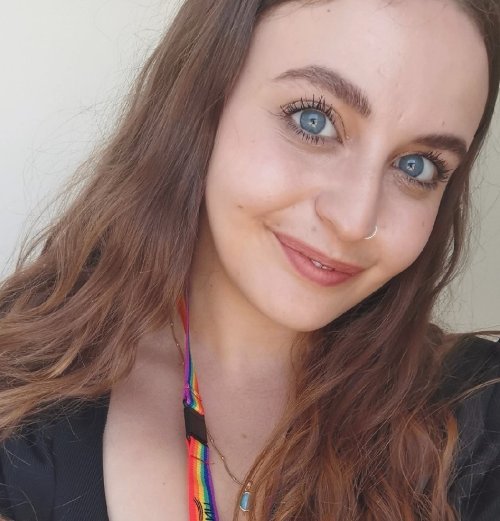With growing demand for assessment and support for people with suspected conditions, such as autism and ADHD, an ongoing lack of diagnosis can have a significant impact on neurodivergent individuals’ mental health. This article explores the relationship between neurodiversity and mental health and the power of post-diagnostic peer support with expertise from Sussex Partnership NHS Foundation Trust.
Ten years ago, few people were familiar with the concept of neurodiversity. That’s how quickly it has gained traction as a way of talking about the differences in our brains and how we view the world. Since it emerged in the late 90s, the idea of neurodiversity has entered – and disrupted – medical and popular discourse around what constitutes normal behaviour. It has also challenged assumptions about mental health, while helping some individuals come to terms with their own experiences.
As an umbrella term for a range of conditions, neurodiversity can include autism, ADHD (attention deficit hyperactivity disorder) and Tourette's syndrome, as well as learning conditions, such as dyscalculia and dyslexia. Though neurodivergent individuals do not necessarily have poor mental health, they can be particularly susceptible to certain secondary conditions. Anxiety, depression and OCD are common for people with autism or ADHD who experience mental health issues.
Growing demand for support
Various reports have suggested that 15 to 20 per cent of the UK population could be considered as neurodiverse. However, the number of people seeking diagnoses and support for related conditions is growing rapidly – far beyond the capacity of mental health services. In June, NHS data revealed that 187,567 people were waiting for an autism assessment in England, an increase of 22 per cent in just one year. This is an urgent problem, because the lack of a diagnosis can itself affect someone’s mental health.
“As well as the mental health struggles you have with neurodiversity, people have to live their whole lives not really being able to understand how they fit into the world,” says Emma Lewington, a mental nurse for Sussex Partnership NHS Foundation Trust. “Some people feel very anxious or often have very low self-esteem. They'll experience a lot of shame, because they feel like they're not able to do things that other people can and they won’t understand why.”
In recent years, Emma has seen a huge increase in the number of referrals to mental health services in West Sussex for neurodiverse conditions. She says up to 50 per cent of all new mental health referrals are for ADHD assessments. Unfortunately, mental health services across the UK have not been able to keep pace with this influx, and waiting lists have lengthened dramatically. Emma’s son was recently found to have a neurodiverse condition – and his diagnosis effectively took six years.

Understanding how you “fit into the world” and the risks of misdiagnosis
“I've experienced it from the other side and it has been really frustrating and really difficult at times. Having a diagnosis is essential, because it helps you and your family understand how to manage things – in the way you're experiencing the world, but also going forward into the future. When you go into a workplace, if you want to disclose it, then the workplace needs to make reasonable adjustments for you.”
These problems are compounded by neurodivergent behaviours being misdiagnosed. Historically, women in particular have often been misdiagnosed or diagnosed very late.
“Understanding and awareness is so much better than it was,” says Emma. “Maybe 10 to 20 years ago, people would often be misdiagnosed with things like bipolar or personality disorder, or even with a psychotic illness. It can still happen, because it is quite nuanced. They do overlap, especially ADHD and EUPD – emotionally unstable personality disorder. And some people might have both as well. It can be really challenging, but I think it happens less now.”
Issy Mitchinson is a peer mental health worker for Sussex Partnership NHS Foundation Trust, who has personal and professional experience of neurodiversity. She was diagnosed with anxiety and depression in her teens and, like many women with ADHD, her neurodivergence was mistaken for EUPD. For her, a proper diagnosis was the key to understanding herself.
“It really does change things,” says Issy. “I think so many of us end up going through so much trauma which leads to the way we view ourselves, which then leads to the decisions you make in life. I ended up being pretty mistreated by people in my life, because I didn't realise what was going on. It was easy for me to believe what these people were saying about me being lazy or stupid or slow, because I'd had it said to me all my childhood, by teachers and in education. When you hear all of these things, the only way your brain can take that is by thinking: ‘I’m the problem’. When actually, I was neurodiverse and nobody knew.”

The power of peer support
Issy is an engagement and peer support worker who trains people to become Experts by Experience, allowing them to use their lived experience to help improve local services. Alongside this, she is a peer trainer for an ‘Introduction to Adult ADHD’ online course for the Sussex Recovery College, which Emma also helps to facilitate.
“I think there’s something really powerful about post-diagnostic peer support,” says Issy. “I think a lot of us are given a diagnosis and then told ‘off you pop’. But it's so empowering and inspirational to see someone further along a journey that you’re facing yourself. And that's why I love my job. Because I get to be that occasionally for other people, and I get to say, look, you know, you can do this. I’ve felt like that as well. I've got through it. I've found a life that's meaningful. I think getting my diagnosis saved my life.”
Interestingly, unlike in some areas of mental health, the emphasis here seems to be on diagnosis and support, rather than treatment. The people on those waiting lists aren’t looking for medication or therapy, merely an assessment.
“So there's this big change in the way neurodivergence is viewed,” Issy explains. “But in terms of funding or capacity or money, it's still very clear that it's not the highest up on the list. At the moment, there is a lack of funding for the NHS in general and obviously there are people high up who have to make difficult decisions. But without the resources, these services are relying on amazing people giving everything they've got.”
Find resources about neurodevelopmental services and support in West Sussex.
Find local sources of mental health support on this website.